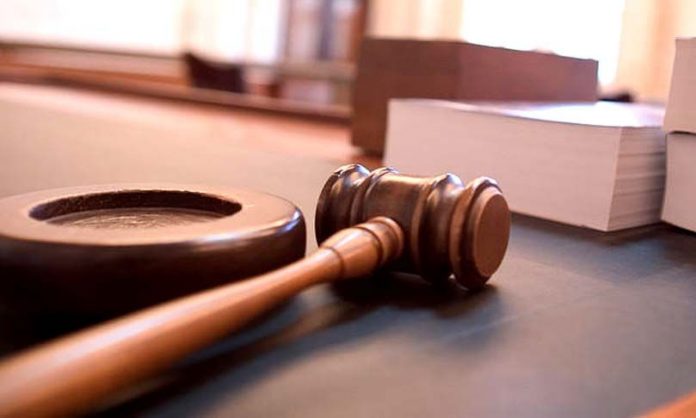This article has been written by Priyal C Bhalerao, pursuing a Certificate Course in Advanced Civil Litigation: Practice, Procedure and Drafting from LawSikho.
Table of Contents
Introduction
A deposition in law is the process that involves the taking of sworn, out-of-court oral testimony of a witness that may be reduced to a written transcript for later use in court. It is an opportunity for a lawyer to examine a witness or party under oath, which may be used during the trial if the witness is not available to testify. Depositions are used to preclude witnesses from changing their testimony in later stages of litigation. Counsel for deponents promotes different objectives in the course of witness preparation and in the deposition itself. Although this is not held in a courtroom, the information that is shared in the deposition will be used by the questioning lawyer as they establish their case. Thus, it is important to spend time preparing for the deposition.
Understanding opposing counsel is an important aspect while investigating the defending attorney. Some are passive during depositions while others are more aggressive. Knowing how the defending counsel may act will help you prepare a strategy. If you know what to expect, you’ll be better prepared to deal with it. All the preparations will be worthless if you ignore the basic rules of deposition. The article further enunciates in-depth analysis on seven tips involved in taking depositions, its preparation, and essential steps along with relevant case laws. 
Preparing for a deposition
Preparation is a very crucial aspect of taking the deposition. It is similarly important for you to save yourself the embarrassment, that it is important to familiarize yourself with the process and various rules in your jurisdiction that govern depositions. Following are the few essential points that will help an advocate while preparing for a deposition:
- Make sure a competent court reporter has been retained and has all the necessary information (e.g. location, time, etc.),
- Have all documents in order,
- Review/rehearse difficult terminology to be used,
- Apply basic rules of deposition and have thorough knowledge of the laws applied for deposition in that jurisdiction,
- Refrain from writing out long prepared questions,
- Write out your points of questioning in order, brief and bullet-pointed,
- Remember that you are soliciting information from a person for deposition, so keep it short and not lengthy,
- As you move along, strike points from the outline as they arise during the deposition so as to remind yourself that a specific topic has been covered.
A deposition sometimes can go on tangents throughout the course of testimony. These can lead your witness to a place where they are comfortable and ready to reveal unprompted valuable information. Hence, keeping a stray from a rigorously prepared outline often yields results.
In most cases, depositions won’t be used as leverage to reach a settlement before a case goes to trial. A deposition can be used as evidence in court, but eventually, a settlement is a key goal. This can be good or bad depending on which side of a lawsuit you’re on and how negotiations go.
Seven tips for taking depositions in India
Following are a few tips to bear in mind while conducting and defending depositions.
1. Be confident and prepared
The first thing while conducting depositions is maintaining composure and confidence. A deposition is not the actual trial. Deposition can only allow you to ease the process and focus more precisely on gathering facts. Remember that if you think in terms of “success” or “failure” during the deposition, you can easily become your own worst enemy. Prior to a deposition, it is important to study your case thoroughly, re-examine key discoveries and consider any facts that can require additional development through testimony. The understanding of the theory of the case will help to guide your course of questions. Additionally, it is helpful to frame your case strategy as you prepare for the deposition.
2. Know the rules
Before beginning with the deposition, it is highly recommended to examine the applicable court rules in that jurisdiction on depositions. For example, the rules on conferring with your client, the time limits for examining witnesses and allowable objections throughout the deposition, etc. Be prepared to respond to an opposing lawyer of the deponent who may guide him with objections that go beyond simply stating the basic objection, or instructing not to answer in a way that is not appropriate. To avoid making an embarrassing, perhaps costly mistake and further legal complications, it is essential to study the rules before the deposition.
3. Research the applicable laws
You need to be familiar with the applicable law, to ask the right questions. Only after getting acquainted and determining the legal elements of both the claims and also the potential defences, can the deponent establish those elements or give testimony disproving them. Subsequently, you will need to review judgments, relevant case opinions, applicable statutes, regulations, etc.
4. Identify the facts of the case
Knowing the facts of the case is an essential requirement for which the deposition is needed. Certainly, facts can be gathered from many sources, including pleadings, documents received via discovery, as well as online public records, news and private investigators, etc.
5. Upfront boilerplates and objections
Reserving objections can always be consequential in the further run. It may lead to unforeseen consequences later in the case if you stipulate that your opposition can reserve their objections. Eventually, it is to your advantage if the opposing lawyer makes their objections during the deposition so that you can counter them in the moment, rather than awaiting trial.
Deposition with a particularly argumentative opposing counsel may find yourself dealing with too many objections that disrupt the flow of your questioning. Eventually, objections can direct the witness towards answering a question in a way that benefits the opposition. This of course is a disadvantage on your part of the case. If there are repeated objections as part of the response, you can notify them as you are well within your rights to request a non-speaking objection.
6. Witness admitting competence
If the case is particularly high-stakes or having emotional concern, it may be possible that witnesses will be even more likely to evade your questions. Generally, you can expect a witness to dodge claims of their competence by asserting that they don’t remember past events or don’t have the framework to understand the questions asked while taking the deposition. You will be in a better position to keep witnesses from evading if you can establish competence before you ask questions about key parts of the case. For example, if you are litigating a medical malpractice case, a licensed surgeon should be able to recall and explain the details that resulted in personal injury.
7. Reviewing the work
After your first deposition, review how to take a deposition so you can create a crisp transcript. Review the transcript while examining your verbal habits. It is natural to have habitual speech patterns because we are accustomed to everyday conversations, rather than having a transcriptionist record every utterance verbatim.
Relevant case laws
It is important to understand what kind of depositions are allowed by the court in terms of their evidentiary value.
- In the case of Rakesh and Anr. Vs. State of Uttar Pradesh and Anr, the role attributed to Appellant Rakesh was that he used country-made pistols and caused injuries on the deceased. It was alleged that so far as the other Appellant’s Suresh and Anish are concerned, they assaulted the deceased with their respective knives. The Supreme Court upheld the decision of the learned trial court and Allahabad High Court. The court held all the accused guilty for the offence punishable under Section 302 r/w 34 of the IPC and sentenced all of them to undergo life imprisonment. While convicting the accused, the learned trial court heavily relied upon the depositions of eyewitnesses and also the medical evidence, and the deposition of Dr. Santosh Kumar who conducted the post-mortem on the body of the deceased.
- The Supreme Court in Satish and Another Etc. vs the State of Haryana; confirmed the conviction of a woman for the murder of her husband based on the sole testimony of her 12-year-old son, who witnessed the murder. The son testified that his mother was present and identified two assassins who killed his father. Both the trial court and the appellate court found that the testimony of the child was reliable and admissible. The 12-year-old son identified both the assassins who were there at the scene of the crime. The court considered the only evidence of the child in deposition.
In light of these cases, we understand that the evidence given by the witness must be evaluated carefully and with great caution as he is susceptible to cohesion. If there is evidence on record to show that a witness has been tutored, the court can reject his statement partly or fully. However, this can be drawn from the contents of his deposition. The deposition of a child witness may require corroboration, but if his deposition inspires the confidence of the court and there is no embellishment, the court may rely upon the evidence given by him. It is well-settled that the evidence of a child witness must find adequate corroboration before it is relied upon. Thus, the rule of corroboration is given prime importance of practical wisdom rather than of law.
Conclusion
Often lawyers underestimate the power of good awkward silence. One of your best tools in a deposition is just being quiet and being a sharp listener, it may encourage your witness to ramble. When a person a witness rambles, they may divulge clues that can lead you to the truth and eventually help you in the deposition. Since you have your prepared deposition outline, you are familiar with what you want to know. This can help you to know where you want to end up. Furthermore, if you turn the deposition into a conversation, you can get more out of a witness, while being in flow with the conversation. It is likely to be overly thorough in asking questions out of fear of making a mistake or missing something can lead to extra-long depositions at this early stage. Receiving some pushback from opposing counsel; do not let that sway you. Being silent is sometimes the best weapon.
References
- https://www.lexisnexis.com/documents/pdf/20080305095219_large.pdf
- 6 Tips for Conducting a Deposition Fearlessly (americanbar.org)
- https://www.advocatekhoj.com/library/judgments/announcement.php?WID=13820
- https://www.lawyersclubindia.com/articles/Child-witness-Reliability-of-his-her-Evidence-8715.asp
Students of Lawsikho courses regularly produce writing assignments and work on practical exercises as a part of their coursework and develop themselves in real-life practical skills.
LawSikho has created a telegram group for exchanging legal knowledge, referrals, and various opportunities. You can click on this link and join:
 Serato DJ Crack 2025Serato DJ PRO Crack
Serato DJ Crack 2025Serato DJ PRO Crack










 Allow notifications
Allow notifications


